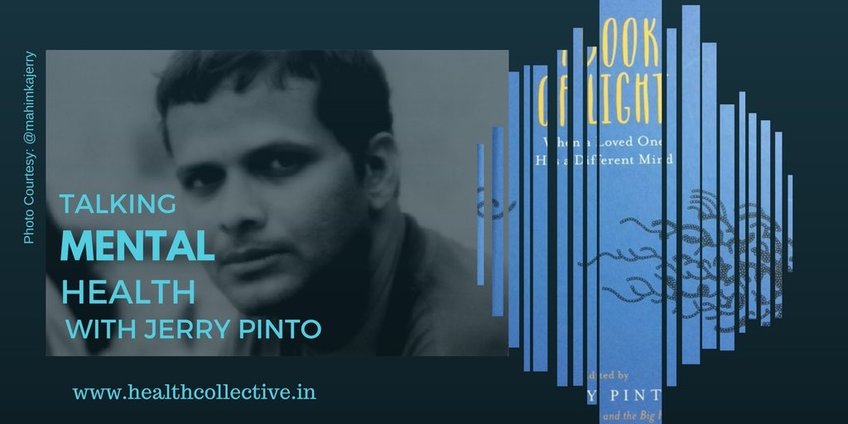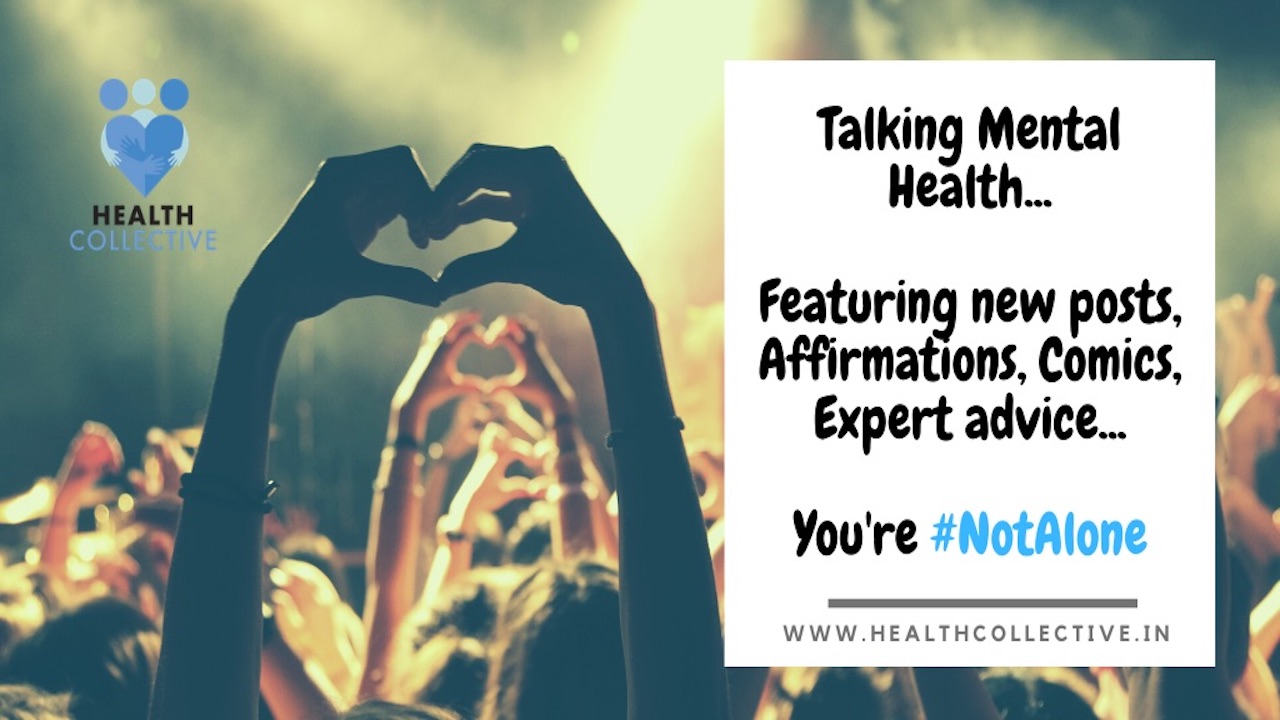Your Stories: Feat. A Book of Light
By Amrita Tripathi
Writer and columnist Jerry Pinto needs little introduction, and as many of you will have seen and read…he has followed up the widely acclaimed Em and the Big Hoom with a powerful and intense book he’s edited — A Book of Light: When A Loved One Has a Different Mind.
Featuring 13 stories, the collection does a lot to humanise people living with different mental conditions, and their care-takers… The stories can’t have been easy to share, either. Some of the people Jerry Pinto approached were friends, in fact, and he writes about the care he took while asking them to write about their experiences…Some people chose to share, some others didn’t.
(In fact, he shares an email address for those of you who want to share *your stories, whether or not you want them shared further: E: assignments.for.jerry[at]gmail[dot]com)
The fact is: Many of us struggle to talk honestly and openly, at different levels, when it comes to mental health, and the stigma persists. There’s no shame in that — neither in the condition, nor in the struggle to speak about it.
What we do know, is that when some of us manage to break free and discuss conditions like schizophrenia, bipolar disorder, depression, anxiety, openly? We manage to crack open a window (to paraphrase and outright borrow from a beautiful piece by Madhusudan Srinivas, on bringing up a son with autism)… And that’s sometimes cathartic for others, not to mention downright liberating when we’re lucky.
(And yet, let me not be glib: At least one of you has mentioned how the stigma persists, in a professional setting, for example…. We have a ways to go.)
But as for A Book of Light? This isn’t a collection you can breeze through, by any stretch, but it will give you an inkling of the courage it takes sometimes, to live life, as well as a feeling … well, that things are going to be okay, after all. You’re not alone – whatever burden you or your loved ones are carrying… It is possible (to paraphrase Jerry) to turn towards the light. As he puts it, it’s a decision we all have to make for ourselves.

I asked Jerry Pinto a couple of questions for us here at The Health Collective:
Amrita: Why do you think it’s important for people to share their stories about mental health issues?
Jerry: I think one of the most important reasons is because the carers and the cared for can feel so alone at times, as if they are fighting quiet, desperate, daily battles on their own. And their victories, the days of calm and peace, those are always discounted for the failures: the time you slapped your parent because that seemed the only way to bring her back to ‘reality’; the time you refused to open a door when there was a desperate knocking on it; the time you sent your son off to be given Electro-Convulsive Therapy.
To know that there are others who have been through the same dilemmas and asked the same questions, who have made the same mistakes and felt the same potent mixture of guilt and grief…this may begin some healing.
Amrita: Do you find that talking about what people go through — whether it’s those with “ a different mind” or those caring for them, or those worried about themselves/ loved ones — does talking about it help ease the burden?
Jerry: I wish I could say: yes, it helps. I wish I could say it without hedging it around with codicils and clauses. But I can say this much: it has helped me and as far as I can see, talk therapy seems to be the kindest therapy that we have, even when it demands from us, a huge honesty, a willingness to investigate the darkest parts of our souls, a complete trust in the person to whom we are talking.
(Coming soon: More of our interview)

Extracts shared with kind permission: Speaking Tiger




